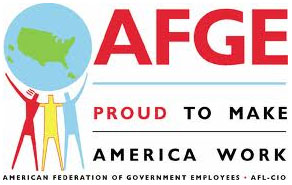NATIONAL
Federal workers’ pay issues lingering long after shutdown
‘Slow and chaotic’ back-pay recovery adds to federal workers’ anguish
The following is from the American Federation of Government Employees:
WASHINGTON, D.C. (Feb. 6, 2019) — Many federal employees are still facing lingering back pay issues a full 12 days after the end of the longest ever government shutdown, adding to their anguish as they face the prospect of yet another shutdown next week, the largest federal employee union said Tuesday.
 “The administration promised a ‘prompt and orderly’ return to normal as soon as the shutdown was over, but unfortunately the payroll process has been slow and chaotic,” American Federation of Government Employees National President J. David Cox Sr. said.
“The administration promised a ‘prompt and orderly’ return to normal as soon as the shutdown was over, but unfortunately the payroll process has been slow and chaotic,” American Federation of Government Employees National President J. David Cox Sr. said.
“Forty percent of the federal workforce – some 800,000 employees across the country – were forced to go without any income for an unprecedented 35 days. Failing to make them whole as soon as possible, as the administration promised it would do, is yet another slap in the face to the hardworking women and men who were used as pawns during this deliberate shutdown,” Cox said.
Among the issues federal employees are facing:
- Some employees initially received only part of the back pay they are owed due to a decision by the federal agency processing their payroll to split the back pay into multiple checks;
- Some payroll processors failed to process certain automatic deductions – including court-ordered child support and Thrift Savings Plan loan payments – forcing employees the nuisance of contacting each party, determining how much is owed, and making the payments on their own; and
- Lacking clarity from agencies on when employees should expect to be fully paid.
 The failure to process certain automatic deductions has been a major disruption for employees, said David Verardo, president of AFGE Local 3403, which represents more than 1,000 employees at the National Science Foundation, National Endowment of the Arts, National Endowment of the Humanities, and the U.S. Geological Survey.
The failure to process certain automatic deductions has been a major disruption for employees, said David Verardo, president of AFGE Local 3403, which represents more than 1,000 employees at the National Science Foundation, National Endowment of the Arts, National Endowment of the Humanities, and the U.S. Geological Survey.
“Employees are being told to make those payments straight to the creditor by themselves without the benefit of automatic deductions,” Verardo said. “I am not sure how this will unfold but I am bracing for employees getting unpleasant notices from creditors or law enforcement if they miss their child support or alimony payments.”
Some federal Railroad Safety Inspectors, many who ensure the safety of our rail system over geographic areas that stretch between 2,500 and 5,000 square miles, still are waiting for their full and complete compensation for all their time worked, said Scott H. Hoose, president of AFGE Local 2814, which represents more than 800 employees at the Federal Railroad Administration.
“During the shutdown, federal Railroad Safety Inspectors worked without pay to ensure the safety of our nation’s rail network – inspecting rail equipment, bridges and tunnels, signal and train control systems, highway grade crossings, and hazardous materials, in addition to working with stakeholders to implement Positive Train Control systems as required by law to prevent train collisions and derailments,” Hoose said. “In performance of these duties, several inspectors incurred mileage and travel expenses they had to pay out of pocket. We are working with every affected employee to make sure they receive all the back payments they are owed as soon as possible.”
Employees at the National Archives and Records Administration received their back pay last week in two separate payments, although employees have not been able to verify the information because the payments do not appear in the Employee Express online payroll system, said Ashby Crowder, president of AFGE Local 2578.
Additionally, NARA’s payroll provider – the Department of the Interior’s Interior Business Center – refused to process certain deductions, including child support and alimony payments and TSP loan repayments, while others deductions like dental and vision premiums may be taken out in future checks, Crowder said.
“The back pay payments do not appear in Employee Express, and it’s unclear whether we will have to make separate payments for things like dental insurance premiums,” Crowder said.
The haphazard way the back pay payments have been handled by the various federal agencies that process federal employee payroll have only added to employees’ stress, Cox said.
“Federal employees and their families suffered greatly as a result of this shutdown, and the last thing they need right now is more confusion and chaos over getting all the back pay they are owed and dealing with any unpaid obligations,” Cox said. “Every day workers must deal with the lingering effects of this shutdown is another day of worry, stress, and distraction from their jobs.”
 President Cox sent a letter to the acting head of the Office of Management and Budget last week, asking for OMB to publicize when employees would be receiving their back pay. To date, no such schedule has been published.
President Cox sent a letter to the acting head of the Office of Management and Budget last week, asking for OMB to publicize when employees would be receiving their back pay. To date, no such schedule has been published.
The American Federation of Government Employees (AFGE) is the largest federal employee union, representing 700,000 workers in the federal government and the government of the District of Columbia.





